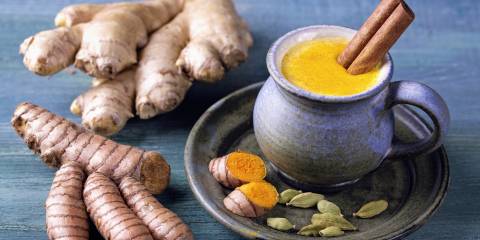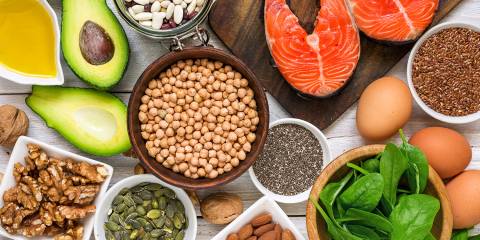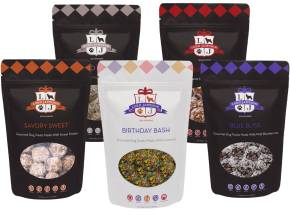Chronic inflammation contributes to conditions such as diabetes, arthritis, cancer, depression, heart disease and Alzheimer’s disease.
What Causes Inflammation?
Acute Inflammation
While inflammation is a sign of damage, it’s also the body’s natural defense mechanism. When we’re injured, white blood cells rush to the area and release a chemical that stimulates blood flow to begin the healing process. This is why an injury swells and becomes hot to the touch. That’s the positive work of inflammation.
“When you train hard you’re always going to get a certain amount of micro-trauma in the muscles and connective tissues that’s absolutely necessary to bring out the body’s repair mechanisms,” said cardiologist and avid runner Robert Liao, MD. “This type of inflammation is acute, or temporary, and can be remedied with nutrients that help clear our system of free radicals and repair oxidative damage.”
Chronic Inflammation
Chronic inflammation is a different story. It occurs when our adrenal glands elevate our levels of cortisol—a steroidal hormone that’s released when the body is under stress.
“Our bodies are not designed to handle elevated cortisol levels over long periods of time,” said Keri Claiborne Boyle, a former nationally ranked triathlete and certified coach of USA Triathlon. “It suppresses the immune system, decreases bone formation, and makes our bodies work overtime.”
Your Diet Affects Inflammation: Eat Right!
We’ve begun to realize that chronic inflammation can be reduced through diet. “Wheat, sugar, red meat, and dairy are all inflammatories,” explained certified health coach Liz Keller. “When our body is inflamed it can show up as joint pain, digestive issues, asthma, even poor oral health.”
Eating the right nutrients, especially those that specifically target inflammation, can help both acute and chronic cases.
Natural Anti-Inflammatory Foods
-
Curcumin
“Curcumin is a natural antioxidant,” Keller said. “It’s the primary active ingredient in turmeric, which is considered a ‘power spice’ because it promotes healing.” Prominent in Indian foods, this bright orange spice has potent anti-inflammatory effects.
Dr. Liao said that he began taking turmeric “to reduce soreness after running, and it worked so well, I no longer needed ibuprofen.”
-
Omega-3 Fatty Acids
EPA, DHA, and ALA help ward off inflammation by reducing exercise-induced muscle damage and delayed-onset muscle soreness. EPA and DHA are abundant in coldwater fish like salmon, tuna, and mackerel, while ALA is found in walnuts, flaxseeds, and some other plants.
“Fish oil plays a huge role in my daily supplementation as an athlete,” said coach and marathoner Sabrina Wieser. “A high dose of fish oil capsules (especially after races or harder workouts) helps me decrease inflammation, enhance protein utilization, and reduce recovery times.”
-
Ginger
This tasty herb has been shown to have strong anti-inflammation properties. Add it to foods, savor it in tea, or try it in its many supplement forms.
-
Berries
Blackberries, blueberries, strawberries, and others are packed with antioxidants that help clear inflammation-causing free radicals from the body. “All berries are anti-inflammatories, but the darker the berry the more healing power it has,” Keller said. Though they aren’t technically berries, tart cherries and their juice have also been shown to have strong anti-inflammatory effects.
Stress Affects Inflammation: Relax!
While we all have stress in our lives, minimizing it can help reduce chronic inflammation. Icing, massage, soft-tissue work, and stretching are great for sore muscles, but you need to take a whole-body approach to address chronic inflammation. Even making small changes—like breathing deeply to slow your heart rate in high-pressure situations—can help. Make a conscious effort to meditate or practice yoga, or take the time to do relaxing, low-stress activities.
“If you’re worried about vascular inflammation, you can have your hs-CRP [highly sensitive C-reactive protein] levels checked,” Dr. Liao said. “If it’s not abnormally elevated, spending hundreds of dollars on supplements may not be a good use of your money.” But choosing to eat fish a couple of times a week, indulging in Indian food regularly, and taking a yoga class just may be.





